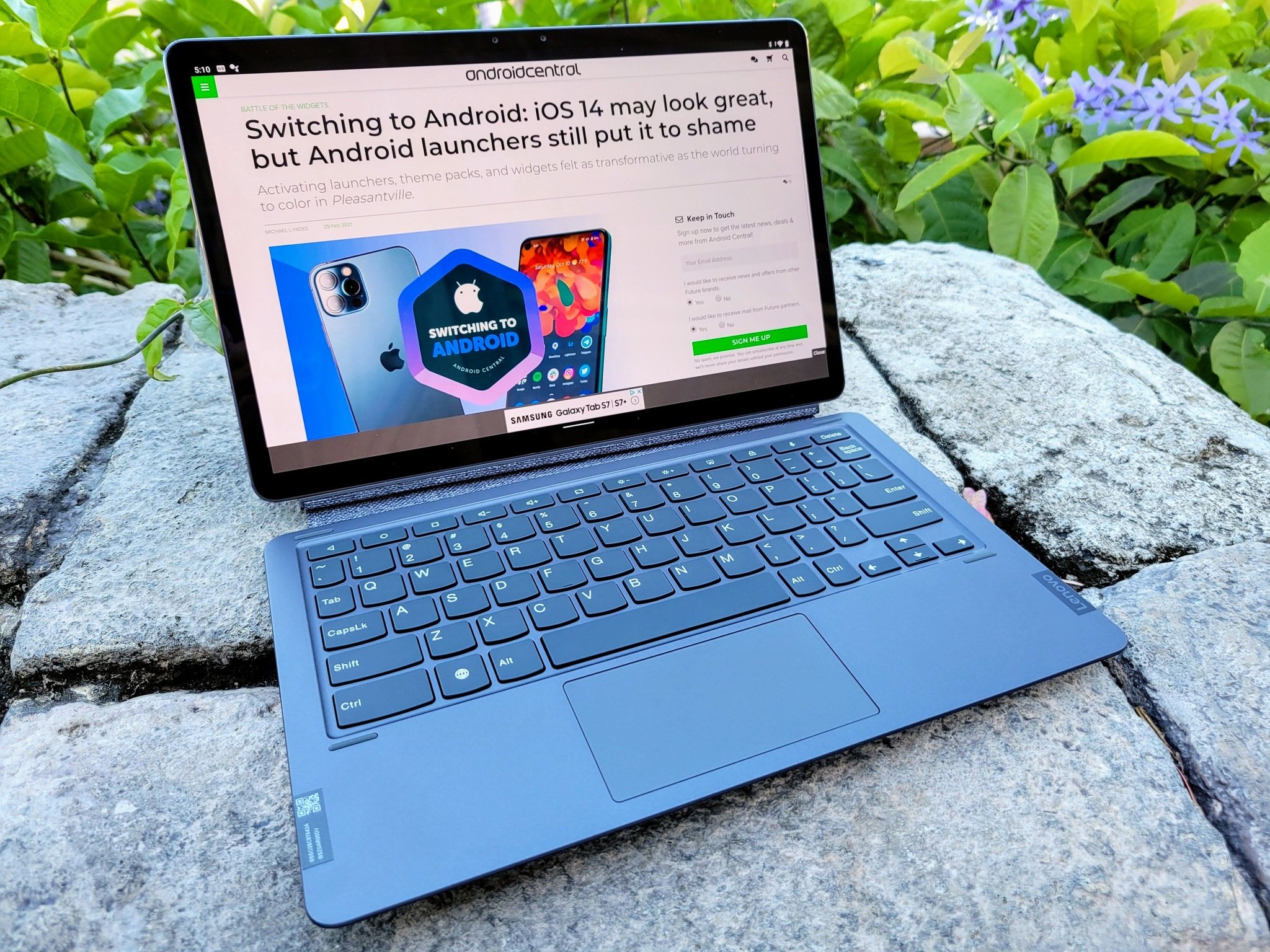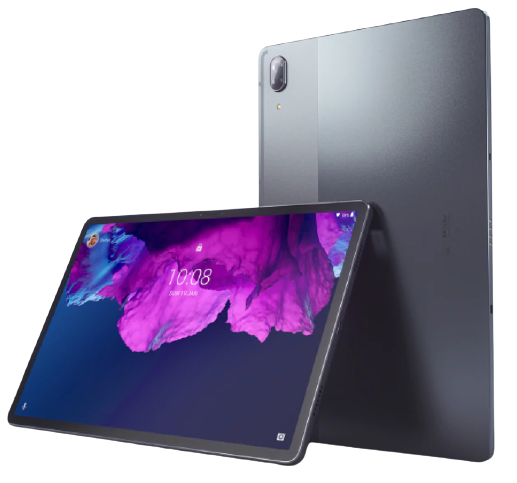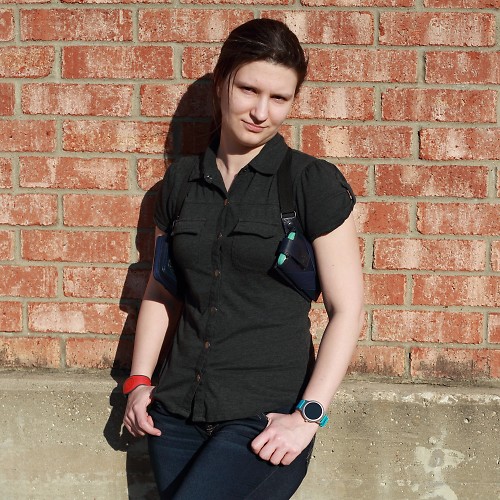Android Central Verdict
Bottom line: A bright, beautiful screen and a fabulous fabric kickstand and keyboard cover help the Lenovo P11 Pro feel as polished and posh as the iPad Air and Galaxy Tab S7+. Sadly, the software trashes the experience the moment you go beyond content consumption into work and productivity.
Pros
- +
Great 2K screen
- +
Long battery life
- +
Premium fit and finish
Cons
- -
Productivity mode is broken
- -
Inconsistent performance
- -
Expensive
Why you can trust Android Central
I'd love to say there's been a lot of competition in the best Android tablets space, but really, Samsung's run the table for years. Lenovo has put out a number of Android tablets but they've all been mid-range or budget models. This year at CES, Lenovo broke that streak with the Lenovo P11 Pro, a premium tablet with great specs that Lenovo claims is a jack-of-all-trades tablet that you can use for work or play.
With a nice big 2K screen, it's easy to see how well the P11 Pro will handle video, comics, and social media, but it's 2021 and we expect tablets to do more these days. In the age of working from home, distance learning, and constant device sharing in a busy home, we need tablets that can work hard and play harder, and while the P11 Pro can definitely play hard, working hard just isn't in the cards.
Lenovo P11 Pro Price and availability
Lenovo released the P11 Pro in November in North America. The base configuration features 4GB of RAM and no keyboard cover or Active Pen for $500. The 6GB P11 Pro without the keyboard or pen is $550 and the bundle with the keyboard and pen will run you $600. The keyboard cover is not sold separately at this time.
If you're getting this tablet, I highly recommend getting the bundle so that you know you've got the keyboard cover if you want to keep the screen covered while in transit and for easier typing on the go. Productivity mode might not be great right now, but the keyboard itself is still perfectly fine for typing in tablet mode.
Lenovo P11 Pro What I like
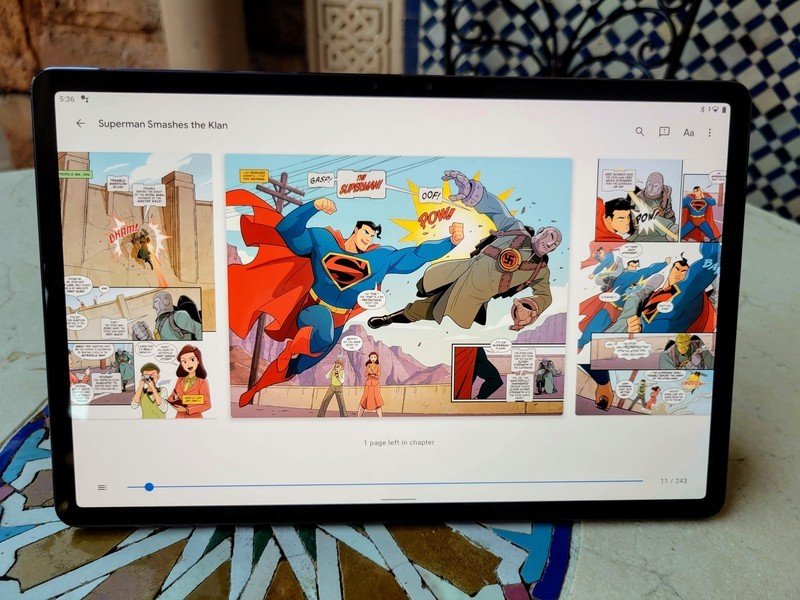
The most important spec on the P11 Pro is its screen, an 11.5-inch 2K touchscreen that looks beautiful and is bright enough to actually use outdoors at 350 nits. It supports HDR10 and Dolby Vision, at least in theory; I tried several streaming apps and none went about 1080p HD except Netflix and YouTube. While the tablet supports Dolby Vision, most apps only enable it on TVs, so it's a non-starter here. Likewise, while the quad speakers here are tuned through the Dolby Atmos app, you'll only get stereo audio in most video apps, but if you're a Tidal subscriber, you can take advantage of it on the P11 Pro.
E-books and webcomics look gorgeous on this screen, and I fell down the rabbit hole of reading comics for a few hours after I pulled up my usual samples. Despite having such a big, bright screen, the battery here will last you a day or two depending on how many hours you spend scrolling Twitter and playing Freecell.
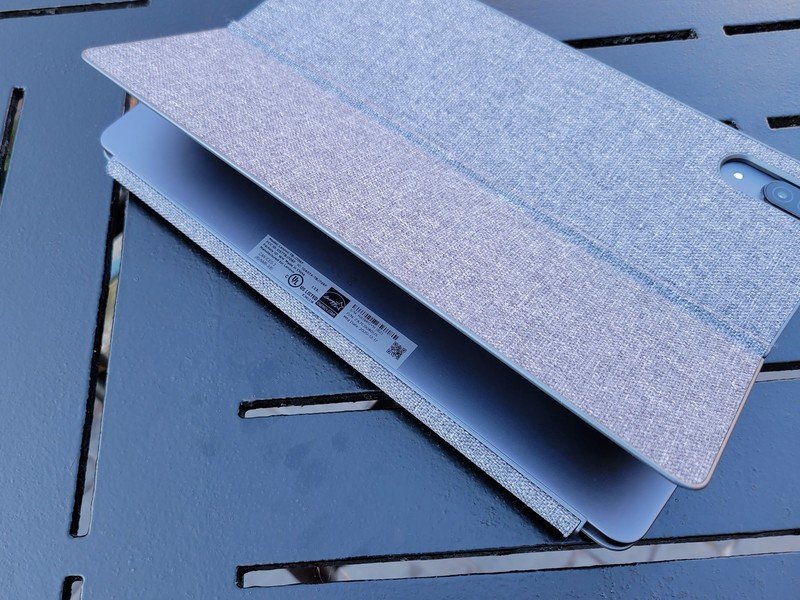
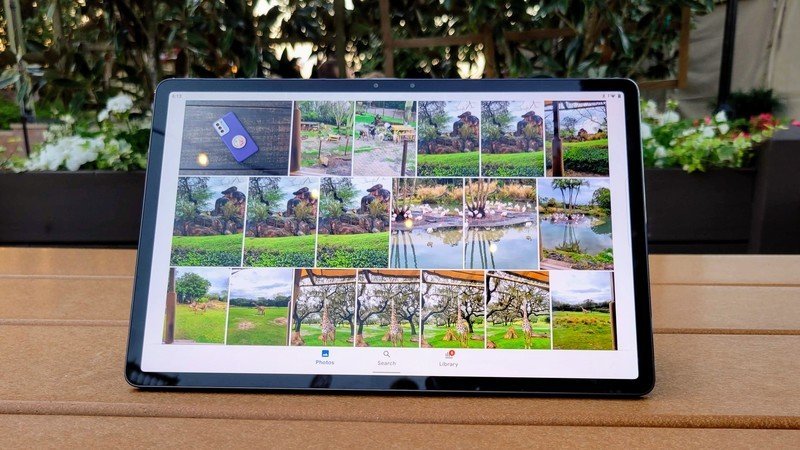
Source: Ara Wagoner / Android Central
| Category | Lenovo Tab P11 Pro |
|---|---|
| Processor | Qualcomm Snapdragon 730G |
| Memory | 4-6GB |
| Storage | 128GBexpandable up to 256GB |
| Display | 11.5" 2560 x 1600px OLEDDolby Vision • 350 nits |
| Battery | 8,600mAhup to 15 hours of use |
| Rear Camera | 13MP autofocus5MP fixed focus |
| Front Camera | 8MP fixed focus8MP fixed focus |
| Connectivity | Wi-Fi 802.11AC • Bluetooth 5WiFi Display • WiFi Direct |
| Ports | USB 3.2 Type-C4-point Pogo pin keyboard connectormicroSD card slot |
| Security | Fingerprint readerFace unlock |
| Speakers | 4x JBL speakersDolby Atmos |
| Colors | Slate Grey |
| Dimensions | 10.4" x 6.74" x 0.22" |
There's a distinct style among high-end tablets right now and Lenovo has not strayed from it with the Lenovo P11 Pro. It's a nice slim slate with flat edges and a chamfer on the front edge where the metal meets the touchscreen. The buttons all sit near the top left corner, where the power button houses a slim fingerprint sensor. It's easy to set up and nice when it works, but you'll probably have to reposition after your first attempt. The cameras on both sides of the P11 Pro are good enough for video calls, but they won't be beating the one on your phone anytime soon.
The keyboard cover here has the fit and finish I wish we could've gotten from the Lenovo Chromebook Duet. It magnetizes to the screen so that it stays neatly closed, the corners are tapered for a more polished look, and the bottom is fabric-covered, unlike the Duet's cheap vinyl. It still feels a bit cramped typing on it for long periods — especially when trying to type anything with a lot of punctuation or symbols — but it's more than adequate for replying to emails and maybe banging out some notes in Google Keep.
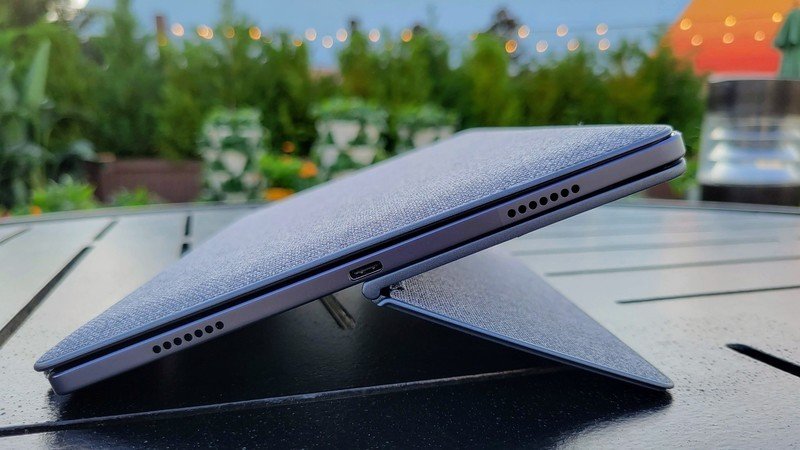
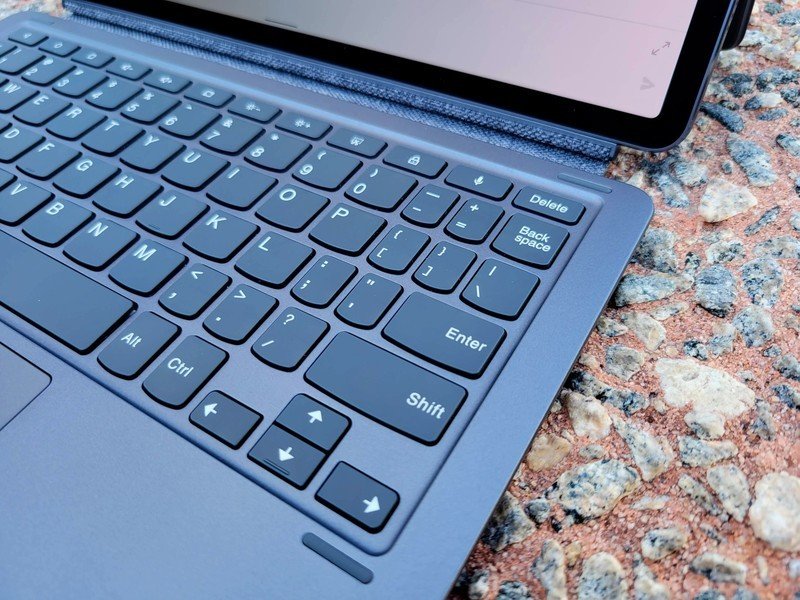
Source: Ara Wagoner / Android Central
The magnetic kickstand is also an improvement over the Duet: the hinge is sturdier and I like how the whole bottom half of the kickstand folds away, letting me feel the cool metal back of the tablet. The magnets holding the kickstand in place are strong enough that they won't come off accidentally, but it's easy enough to pull it off when you want to hold the tablet up without the extra weight.
The Lenovo Precision Pen 2 was included with my review unit, but I didn't use it much and I'll be the first to say that unless you're an artist or a stylus addict, you can totally skip it. Unlike the stylus on the Galaxy Tab S7+, this won't magnetize to the back of the tablet; it has to go into the silicone sleeve that you can either stick onto the back of your tablet with adhesive or attach to a keychain.
Don't try to work on this
Lenovo P11 Pro What I hate
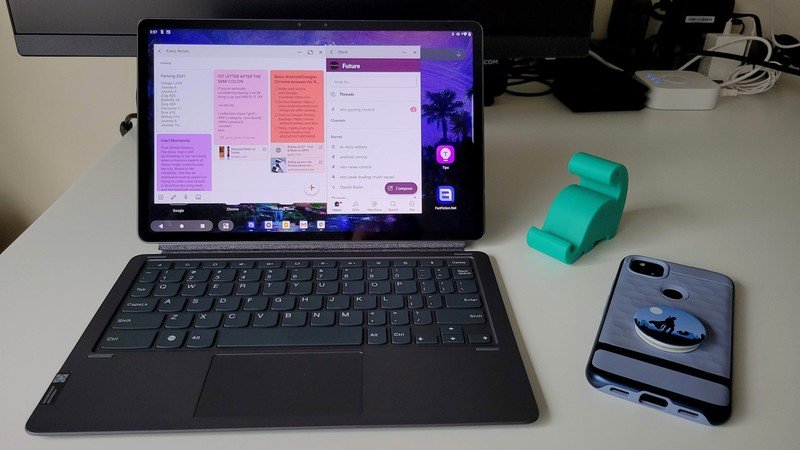
Lenovo tried to position the P11 Pro as a "do-it-all" tablet, saying that it's perfect for all your slacking off and entertainment needs while still having the tools and the power to get what you need done. I have spent a week trying to find a way in which the latter half of that statement is true, and I am sorry to say that I failed. Actually, Lenovo failed. Every time I tried to do more than just check email, I wanted to throw this beautiful tablet into the closest ocean.
I've worked from tablets before, and I'm used to working from the best Chromebooks, both expensive and modest. Chrome OS might not be as beefy as Windows or Mac — which didn't stop Chrome from becoming the second most popular desktop OS on the planet last year — but at least Slack doesn't crash three times in a row while trying to use it in split-screen on my Chromebook.
Productivity mode killed my productivity with crashes and incompatibility.
If you leave the P11 Pro in tablet mode 100% of the time, you can expect a halfway decent experience with apps. The cursor will jump around when dealing with text selection, there may be a bit of jank when trying to use the trackpad instead of touching the screen, and the keyboard shortcuts you're used to dealing with on a desktop version of your service might not be there, but the apps will work.
Once you put the P11 Pro into Productivity mode, however, all bets are off. Productivity mode is much like Dex on Samsung's Galaxy Tab S7 line, except that Samsung has worked with developers for years to get a wider selection of compatible apps and iron out the kinks. Lenovo's version feels very much like a beta between the lack of app compatibility and propensity for apps to crash and reload. Considering the P11 Pro is running the Snapdragon 730G, I don't think this is a hardware limitation; I think it all boils down to software just not being finished in this area.
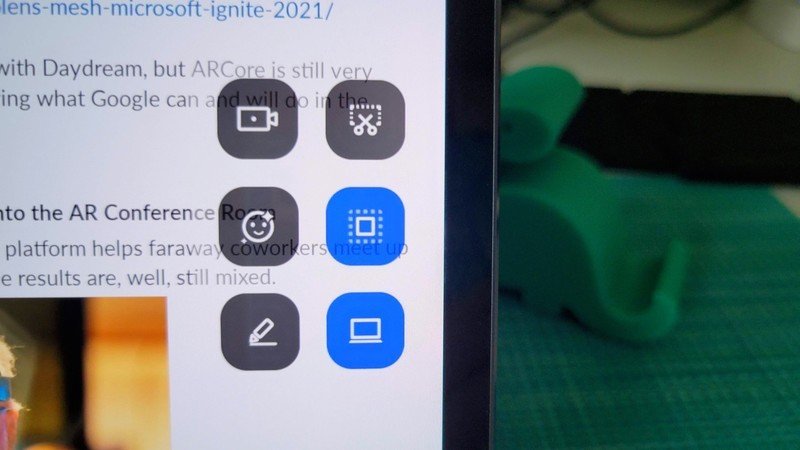
App compatibility is the biggest issue here, because even if an app has tablet layout, if you're in Productivity mode, it loads in a tiny, phone-sized window. You can't make it full-screen or re-size it without closing Productivity mode: it'll let you split-screen them, but when I tried this with the unsupported Slack app, it crashed three times before I just threw up my hands and grabbed a Chromebook instead.
If you want to use the P11 Pro as a content consumption device that you'll maybe reply to a few emails on, that's fine. But even doing light work on the P11 Pro is just asking for frustration, especially when Lenovo itself offers a better "do-it-all" tablet for less money than the P11 Pro.
Lenovo P11 Pro Competition
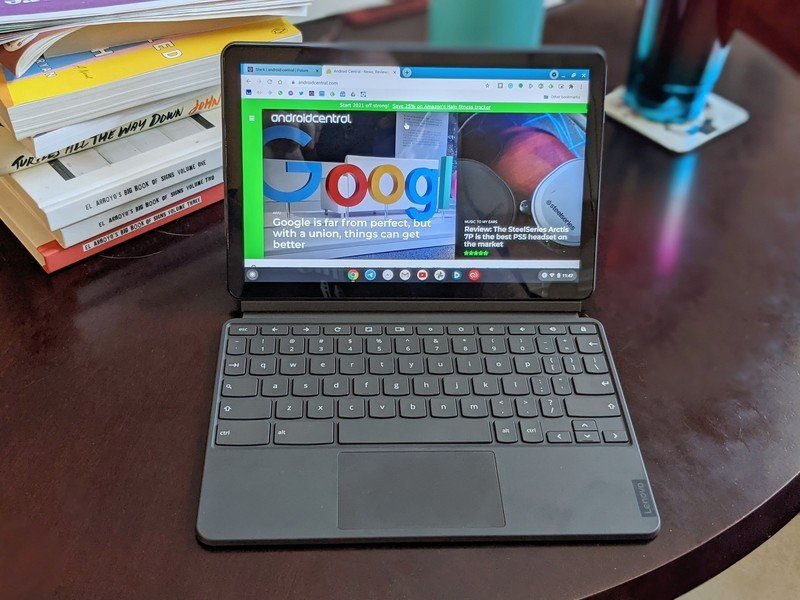
The Lenovo Chromebook Duet looks almost as good as the P11 Pro and works five times better, especially when it comes to actually working on the tablet. If the P11 Pro had been the Chromebook Duet Pro with that 2K screen and a proper desktop mode, it would've been something to instantly recommend to anyone who loved last year's Duet but wanted something bigger than ten inches. And given that the Duet is available for $300 with the keyboard and kickstand while the bundled P11 Pro is $600, the Duet is a much better value.
Samsung has a better Dex mode on the Galaxy Tab S7 and S7+, and it's available in multiple colors and multiple storage capacities. Just the Tab S7 by itself is $570 while the P11 Pro with the keyboard and Precision Pen is $600, but that extra cost is worth it for the more refined and stable experience on Samsung, not to mention that Samsung just promised four years of security updates for the Tab series while Lenovo's update history is lackluster, to say the least. Again, Chrome OS would've solved this problem by taking updates out of Lenovo's hands and making them Google's responsibility.
And then of course there's the biggest competitor for all of these tablets: the iPad Air (2020). If you're not married to Android, the iPad Air offers a better app experience while still giving you that premium design and access to a much larger pool of accessories. I'd argue that the Duet still has the better work experience thanks to the desktop Chrome browser and Chrome's amazing keyboard shortcuts, but I know iPad rules the tablet world.
Lenovo P11 Pro Should you buy it?
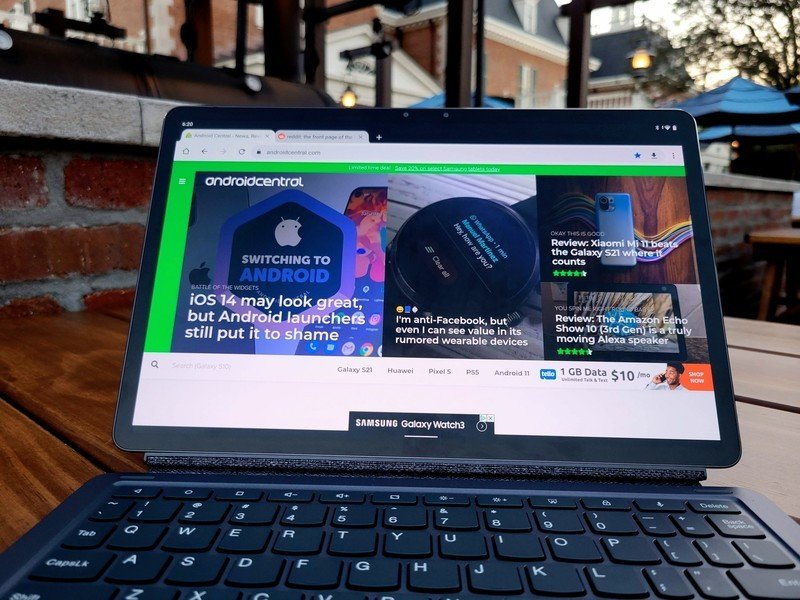
You should buy this if ...
- You want a gorgeous screen for less
- You don't need to do any serious work on here
- You don't mind waiting for updates
You should not buy this if ...
- You intend to work part-time or full-time on it
- You lack patience for bugs
- You need a proper desktop UI
Lenovo got the hardware right on the P11 Pro, and as a light-duty tablet for music, movies, and games, it does perfectly fine. The problem is, for $500 to $600, I don't want "just fine"; I want a tablet that does everything it claims to do flawlessly, and Lenovo's software just can't live up to expectations.
2.5 out of 5
Android tablets continue to get better — and Android 12 might finally give them the shot in the arm they need — but Lenovo needs to make some significant improvements in future updates if it wants to play with the working-class tablets. As a content consumption device, the P11 Pro fits the bill, but not as well as its competition.
Ara Wagoner was a staff writer at Android Central. She themes phones and pokes YouTube Music with a stick. When she's not writing about cases, Chromebooks, or customization, she's wandering around Walt Disney World. If you see her without headphones, RUN. You can follow her on Twitter at @arawagco.
